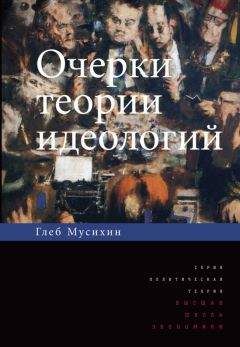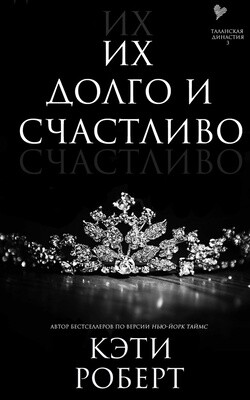Глеб Мусихин - Очерки теории идеологий

Помощь проекту
Очерки теории идеологий читать книгу онлайн
Pugh M. The Making of Modern British Politics 1867–1939. Oxford: Blackwell, 1982.
Radice H. Globalization and National Capitalisms: Theorizing Convergence and Differentiation // Review of International Political Economy. 2000. No. 4.
Radice H. «Globalization» and National Differences // Competition and Change. 1998. No. 3.
Ragin C. Fuzzy-set Social Science. Chicago, IL: University of Chicago Press, 2000.
Rawls J. Political Liberalism. N.Y.: Columbia University Press, 1993.
Raz J. The Morality of Freedom. Oxford: Oxford University Press, 1986.
Richardson H.S. Practical Reasoning about Final Ends. Cambridge: Cambridge University Press, 1994.
Ridley M. Nature via Nurture. Genes, Experience, and What Makes Us Human. L.: Fourth Estate, 2003.
Riker W. Liberalism against Populism: A Confrontation Between the Theory of Democracy and the Theory of Social Choice. San Francisco, CA: Freeman, 1982.
Rodriguez-Pose A. Dynamics of Regional Growth in Europe: Social and Political Factors. Oxford: Oxford University Press, 1998.
Rorty R. Philosophy and the Mirror of Nature. Oxford: Basil Blackwell, 1980.
RortyR. That Old-time Philosophy// New Republic. 1988. No. 4.
Rorty R. Thugs and Theorists // Political Theory. 1987. No. 15 (4).
Saito S. Television and Political Alienation: Does Television News Induce Political Cynicism and Inefficacy in Japan? // International Journal of Japanese Sociology. 2008. No. 17.
Schmidt V. The Futures of European Capitalism. Oxford: Oxford University Press, 2002.
Schmoeckl R., Kaiser B. Die vergessene Regierung. Bonn: Bouvier, 1991.
Schuttler CR Historians and Discourse Analysis // History Workshop Journal. 1989. Spring. No. 27.
Schwartz J. Anti– Humanism in the Humanities // Public Interest. 1990. No. 99.
Scruton R. In Inverted Commas // Times Literary Supplement. 1992. 18 December.
Scruton R. Modern Philosophy. L.: Sinclair-Stevenson, 1994.
Scruton R. The Meaning of Conservatism. 2nd ed. Basingstoke: Macmillan, 1984.
Shonfield A. Modern Capitalism. Oxford: Oxford University Press, 1964.
Skinner Q. Liberty before Liberalism. Cambridge: Cambridge University Press, 1998.
Skinner Q. The Foundations of Modern Political Thought. Cambridge: Cambridge University Press, 1978.
Skinner Q. Visions of Politics. Vol. I: Regarding Method. Cambridge: CUP, 2002.
Soskice D. Wage Determination: The Changing Role of Institutions in Advanced Industrialized Countries // Oxford Review of Economic Policy. 1990. No. 4.
Stande und Gesellschaft im Alten Reich / Hrsg. G. von Schmidt. Stuttgart; Wiesbaden: Steiner-Verlage, 1989.
Stanlis P. Edmund Burke and the Natural Law. Ann Arbour: University of Michigan Press, 1958.
Stavrakakis Y. Antinomies of Formalism: Laclaus Theory of Populism and the Lessons from Religious Populism in Greece // Journal of Political Ideologies. 2004. No. 9.
Stone L. The Past and the Present Revisited. L.: Routledge and Kegan Paul, 1981.
Sträth B. The Concept of Work in the Construction of Community // After Full Employment. European Discourses on Work and Flexibility / ed. by B. Sträth. Brussels: PIE-Peter Lang, 2000.
Strauss L. Natural Right and History. Chicago: University of Chicago Press, 1953.
Suny R. G. Back and Beyond: Reversing the Cultural Turn? // American Historical Reviewro. 2002. No. 107 (5).
Szakolszai A. Max Weber and Michel Foucault: Parallel Life-Works. L.: Routledge, 1998.
Taylor C. The Politics of Recognition // Multiculturalism: Examining the Politics of Recognition / ed. by A. Gutmann. Princeton: Princeton University Press, 1999.
Texts and Practices: Readings in Critical Discourse Analysis / ed. by CR. Caldas-Coulthard, M. Coulthard. L.: Routledge, 1996.
The Construction of Mental Representations During Reading / ed. by H. van Oostendorp, S.R. Goldman. Mahwah, NJ: Lawrence Erlbaum, 1999.
The Enlightenment and Modernity / ed. by H. Geras, R. Wokler. Basingstoke; N.Y.: Palgrave MacMillan, 2000.
The Rise of the Social Sciences and the Formation of Modernity. Conceptual Change in Context, 1750–1850 / ed. by J. Heilbron, L. Magnusson, B. Wittrock. Dordrecht; L.: Klu-wer Academic, 1998.
Thelen K. Varieties of Labor Politics in the Developed Democracies // Varieties of Capitalism: The Institutional Foundations of Comparative Advantage / ed. by P.A. Hall, D. Soskice. Oxford: Oxford University Press, 2001.
Thompson J.B. Studies in the Theory of Ideology. Berkeley, CA: University of California Press, 1984.
Toulmin CS. Cosmopolis. The Hidden Agenda of Modernity. N.Y.: The Free Press, 1990.
Turner J. The Messenger Overwhelming the Message: Ideological Cues and Perceptions of Bias in Television News // Political Behavior. 2007. No. 29.
Vallacher R.R., Wegner D.M. Levels of Personal Agency: Individual Variation in Action Identification // Journal of Personality and Social Psychology. 1989. No. 57.
Varieties of Capitalism: The Institutional Foundations of Comparative Advantage / ed. by P.A. Hall, D Soskice. Oxford: Oxford University Press, 2001.
Vercellone C. From Formal Subsumption to General Intellect: Elements for a Marxist Reading of the Thesis of Cognitive Capitalism // Historical Materialism. 2007. No. 15.
Virno P. General Intellect // Historical Materialism. 2007. No. 15.
Virno P. Multitude: Between Innovation and Negation. Los Angeles, CA Semiotext(e), 2008.
Watkins S.C. From Provinces into Nations. Demographic Integration in Western Europe 1870–1960. Princeton: Princeton University Press, 1991.
Weaver R. Ideas Have Consequences. Chicago: University of Chicago Press, 1948.
Weber M. The Meaning of «Ethical Neutrality» // Max Weber on the Methodology of the Social Sciences / ed. by E. Shils, H. Finch. Glecoe, IL: Free Press, 1949.
Westlind D. The Politics of Popular Identity: Understanding Recent Populist Movements in Sweden and the United States. Lund: Lund University Press, 1996.
White H. Metahistory The Historical Imagination in the Nineteenth Century. Baltimore: Johns Hopkins University Press, 1973.
Whitley R. Divergent Capitalisms. Oxford: Oxford University Press, 1999.
Will G. The Leveling Wind. N.Y.: Viking, 1994.
William H., Sewell J. The Concept(s) of Culture // Beyond the Cultural Turn. New Directions in the Study of Society and Culture / ed. by E. Bonnell, L. Hunt. Berkeley, CA: University of California Press, 1999.
Wilson J.Q. The Moral Sense. N.Y.: Free Press, 1993.
Wittrock В. The Meaning of the Axial Age // Axial Civilizations and World History / ed. by J. Arnason, S.N. Eisenstadt, В. Wittrock. Leiden: Brill, 2004.
Wodak R. Language, Power and Ideology: Studies in Political Discourse. Amsterdam: Walter Benjamins, 1989.
Zeitlin J. Introduction // Governing Work and Welfare in a New Economy – European and American Experiments / ed. by J. Zeitlin, D. Trubek. Oxford: Oxford University Press, 2003.
Žižek S. The Sublime Object of Ideology. L.: Verso, 1989.
Žižek S. Tarrying with the Negative. Durham: Duke University Press, 1993.
Žižek S. Introduction: The Spectre of Ideology// Mapping Ideology. L.: Verso, 1994.
Žižek S. The Indivisible Remainder. L.: Verso, 1996.
Žižek S. Plague of Fantasies. L.: Verso, 1997.
Žižek S. Da Capo Senza Fine // Contingency, Hegemony, Universality: Contemporary Dialogues on the Left / ed. by J. Butler, E. Laclau, S. Žižek. L.; N.Y.: Verso, 2000.
Žižek S. In Defence of Lost Causes. L.; N.Y.: Verso, 2008.
Žižek S. On Belief. L.; N.Y.: Verso, 2001.
Žižek S. Why Does Law Need an Obscene Supplement? // Law and the Postmodern Mind: Essays on Psychoanalysis and Jurisprudence / ed. by P. Goodrich, DC. Carlson. Ann Arbor, MI: University of Michigan Press, 1990.
Zuckert С. Postmodern Platos. Chicago: University of Chicago Press, 1996.
Примечания
1
См., например: [Lane, 1962].
2
«Немецкая идеология» содержит как минимум два разных понимания идеологии: одно – эпистемологически-философское (идеология как «ложное сознание», своеобразная camera obscura, «преломляющая» реальный мир под определенным ценностным углом зрения), и другое – непосредственно политическое (идеология как комплекс идей и мировоззренческих принципов правящего класса).
3
Достаточно вспомнить, например, Берлинский кинофестиваль, организаторы которого никогда не скрывали политической подоплеки формирования конкурсной программы.
4
В реальности или только в собственном воображении – в данном случае не принципиально.
5
Вспомним критику Просвещения Э. Берком, который говорил, что «ясная идея, чаще всего, является бедной идеей» [Берк, 1979, с. 63].
6
О междисциплинарном исследовании идеологий см.: [Dijk, 1998].
7
См. об этом: [Converse, 1964].
8
См., например: [Billig, 1982; Eagleton, 1991; Larrain, 1979; Thompson, 1984; Freeden, 1996].
9
См., например: [Political Cognition, 1986; Feldman, 1988, p. 416–440].
10
См. об этом: [Vallacher, Wegner, 1989, p. 660–671].
11
Об «экспертах» и «дилетантах» в сфере политических убеждений см., например: [Fiske, Kinder, 1981].
12
См. об этом: [Dijk, Kintsch, 1983; The Construction of Mental Representations During Reading, 1999].
13
О контекстуальных моделях дискурса см.: [Dijk, 1999, p. 123–148].
14
Подробнее о ментальных моделях см.: [Johnson-Laird, 1983].
15
О коллективных верованиях и предубеждениях см.: [Dijk, 1984; 1987; 1993].
16
О критическом дискурсивном анализе см., например: [Texts and Practices, 1996; Fairclough, 1995; Fowler, 1991; Kress, Hodge, 1979; Dijk, 1995, p. 243–289; 1998a; 1998b; 2001, p. 1–40; 2004, p. 5–38; Wodak, 1989; Methods of Critical Discourse Analysis, 2001].
17
О разделении идеологий и утопий см.: [Манхейм, 1994b, с. 7–260].
18
См. об этом: [Луман, 2001].
19
Подробнее об этом см.: [Edwards, Potter, 1992].
20
О свободе «голоса» см.: [Hirschman, 1970].
21
О связи рациональности и ценностного выбора см.: [Raz, 1986, р. 398].
22
Подробнее см.: [Larmore, 1996].
23
См. об этом: [Strauss, 1953].
24
См., например: [Weaver, 1948].
25
См., например: [Kristol, 1983].
26
Знаковым событием стало обращение к творчеству Лео Штрауса идеологически неангажированного Ричарда Рорти. См. об этом: [Mansfield, 1988, р. 34].
27
Для американских охранителей подобная идея преемственности была крайне «некомфортна», так как Соединенные Штаты Америки были самым концентрированным воплощением Модерна.
28
См., например: [Murray, Herrnstein, 1994].
29
См. об этом: [Devigne, 1994, р. 190–193].
30
См. об этом: [Mêszàros, 1989, р. 42–43].
31
См., например: [Kristol, 1995, p. 9–22].
32
См. об этом: [Мусихин, 2002; 2006].
33
См., например: [Stanlis, 1958].
34
См. об этом: [Himmelfarb, 1996].
35
Принцип катехона состоит в том, что библейская эсхатология не стремится ни к совершенствованию церкви, ни к искоренению зла, чтобы не воспрепятствовать пришествию Христа.
36
См.: [Шмитт, 2008, с. 581].
37
См. об этом: [Jameson, 2002].
38
Подробнее о популизме как фрагментарной идеологии см.: [Mudde, 2004, р. 542–563].
























